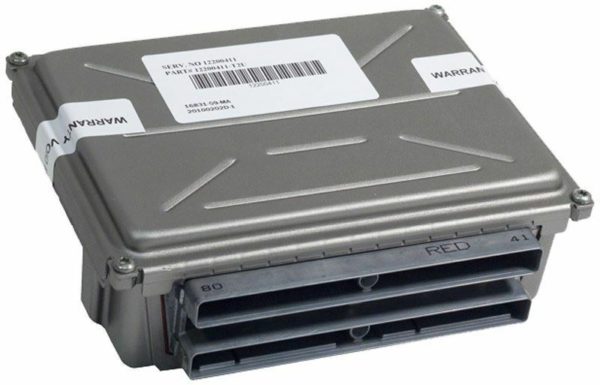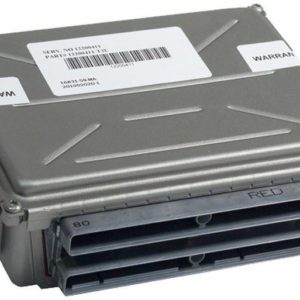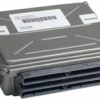Is Your 1998 Malibu Running Rough, Stalling, or Showing a Check Engine Light?
If you’re dealing with frustrating engine problems like erratic performance, poor fuel economy, hard starting, or transmission shifting issues, the root cause is often the vehicle’s brain: the Powertrain Control Module (PCM). As a technician with over two decades of experience under the hood, I’ve seen firsthand how a failing PCM can mimic a dozen other problems, leading to expensive and unnecessary repairs. Don’t replace sensors and spark plugs blindly; address the core of your vehicle’s electronic control system.
The Smart Solution: A VIN-Programmed 1998 Malibu PCM
This isn’t just a replacement part; it’s a complete, ready-to-install solution for your vehicle. We take the guesswork and the expensive dealership visits out of the equation. When you order, we use your vehicle’s unique VIN to flash this module with the latest, most stable software updates directly from GM. This ensures perfect communication between your engine, transmission, and all related systems, restoring the smooth, reliable performance you expect.
From My Bay to Your Driveway: A Real-World Diagnostic Story
“A customer’s 1998 Buick LeSabre, which uses a very similar PCM, came in last month with a complaint of intermittent stalling at stoplights and harsh 2-3 shifts. They had already replaced the throttle position sensor and the mass airflow sensor with no luck. The tricky part was that it wouldn’t always throw a code. After hooking up my scan tool and monitoring live data, I noticed the injector pulse width was fluctuating wildly just before a stall. This pointed directly to a faulty driver inside the PCM. We installed a VIN-programmed module just like this one, and the car has been running perfectly ever since. This is a classic case where the PCM itself is the culprit, not the parts it controls.”
Why Choose This Pre-Programmed Module?
- ✔ VIN-Specific Programming: We flash the module to your exact vehicle, ensuring it works correctly right out of the box. Just provide your VIN after purchase.
- ✔ Latest GM Software: Your PCM will be loaded with the newest factory updates, which often solve driveability issues that were present even when the car was new.
- ✔ No Dealer Required: This module is prepared for a simple, direct installation. You won’t need to have the vehicle towed to a dealer for expensive programming.
- ✔ Solves Common Issues: A reliable fix for Check Engine Light (CEL) illumination, failed emissions tests, random stalling, and poor engine/transmission performance.
Simple, DIY-Friendly Installation Guide
You can get your vehicle back on the road in under an hour with basic hand tools. While the exact location can vary slightly by model, the process is straightforward.
- Safety First: Disconnect the negative terminal from your car’s battery and wait about 10 minutes for any residual power to drain.
- Locate the PCM: On most of these GM models, the PCM is located in the engine compartment, often inside the air filter box assembly for protection.
- Disconnect the Connectors: Carefully unclip the wiring harness connectors from the old module. Inspect the pins on the harness for any corrosion or damage.
- Swap the Modules: Unbolt and remove the old PCM. Mount the new module securely in its place.
- Reconnect Everything: Firmly plug the wiring harnesses into your new PCM. Reconnect the negative battery terminal.
- Final Check: Start the vehicle. The check engine light may stay on for a short drive cycle as the computer relearns, but it should then turn off. No further programming is needed.
Guaranteed Compatibility
This module is a direct replacement for several service numbers, ensuring a perfect fit and function for a wide range of vehicles. It is compatible with part numbers: 09356741, 16236757, 9357034, 9357440, and 9366314.
This part will fit many 1998 and 1999 GM models including the Malibu, Cutlass, Grand Am, LeSabre, Park Avenue, Venture, Alero, Riviera, Century, Skylark, Grand Prix, Achieva, Eighty Eight, Silhouette, Firebird, Camaro, and more. Please verify your part number or consult the detailed fitment list to confirm for your specific vehicle.


